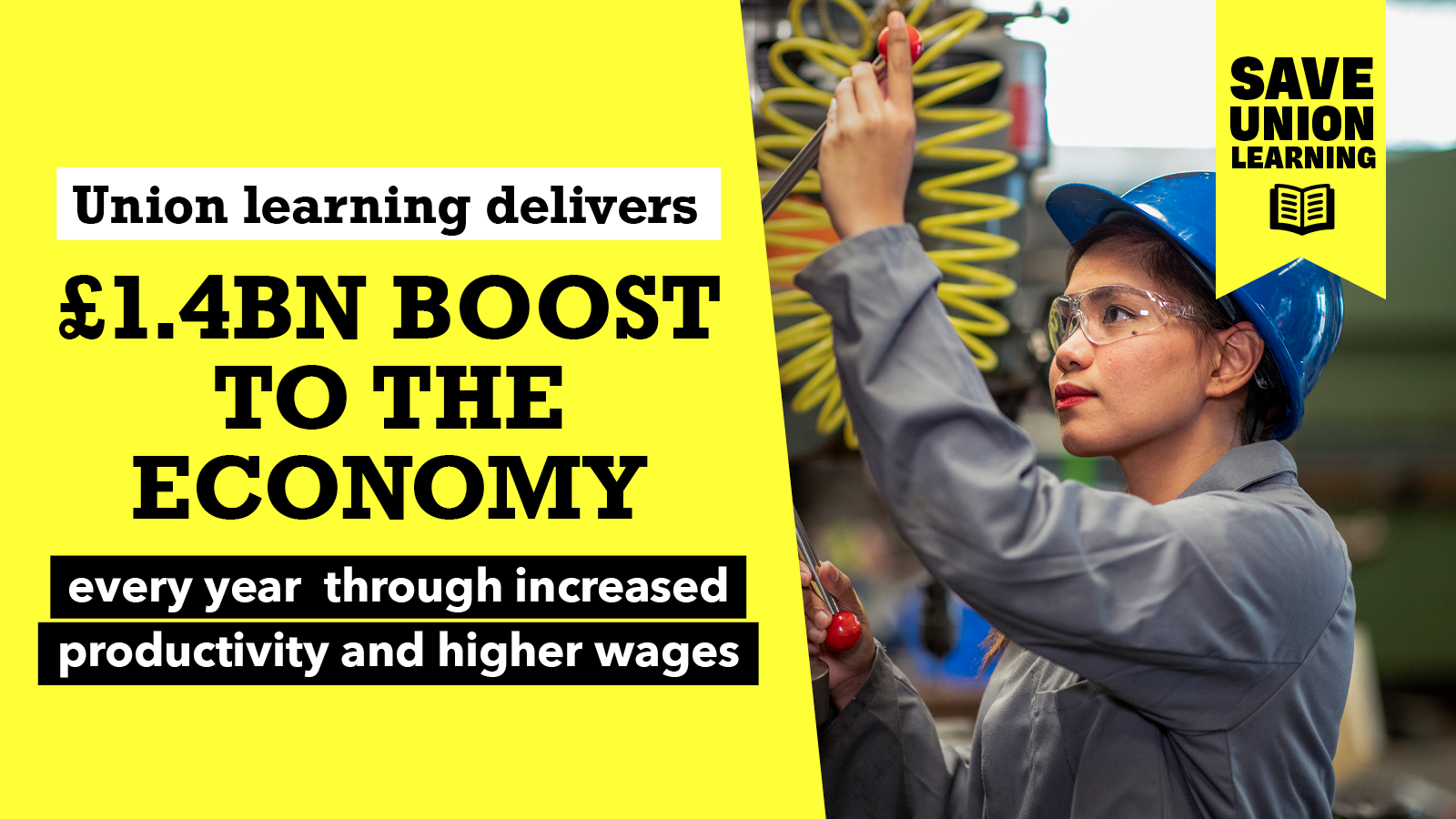Young workers month
Young people could be forgiven for despairing that the world of work will never work out for them, as new TUC analysis highlighting the chronic difficulties many younger workers face in the labour market shows.
Yet there is a solution to deal with problems raised in the analysis, released to coincide with the TUC’s Young Workers Month – young people need to join a trade union.
One of the biggest issues facing young workers in Britain is higher job insecurity, with young people much more likely to be in insecure and low-paid roles compared to other age groups.
More than half of people working on zero-hour contracts and nearly 6 in 10 casual workers are between 18 to 24 years old, meaning they are deprived of workers’ rights and are at an increased risk of underemployment and low job satisfaction.
Additionally, young people now earn less than the generations before them – something that was previously unheard of.
Since 2008 all workers have been hit by a real terms wage fall, but young workers have been hit particularly hard.
Compared to a decade ago, workers aged between 22 and 29 are worse off by ÂŁ15 per week, while 18 to 21 year olds are earning ÂŁ45 a week less than they were in 2008.
Meanwhile, the gap between what younger and older workers earn has widened, with the increase in the average older worker’s pay over the last 20 years double that of the average younger worker’s over the same period.
Another issue to hit young workers is that their efforts and investments in gaining qualifications are not paying off.
Today’s graduates are not receiving the same boost in earnings experienced by those who left university in 1998.
Over the last two decades, people aged 21 to 30 with degrees have seen their return on wages fall.
This trend can, in part, be attributed to the Tories’ public sector pay freeze, which hit graduates that went into teaching or medicine.
However, there is also a disparity in the number of qualified people and available jobs – forcing many graduates to take up non-graduate roles.
Adding to the difficulties is that many areas of the country simply do not have enough decent jobs.
Young people’s pay progression is now often closely tied to where they live – specifically big cities and especially London.
Echoing Unite’s call for decent well paid work throughout the country, the TUC’s analysis said, “Quite apart from uprooting yourself, moving across the country can be difficult without family support to help with the astronomical rents in the UK’s big cities.
“No worker should have to move to London simply to get a pay rise, which is why we need great jobs in every part of the country.”
Unite national officer for young members Rhys McCarthy acknowledged that there are many reasons why young people are getting a raw deal at work and explained that the labour market often puts barriers in their way when they want to change things for the better.
“We know young people are desperate to improve things and the best way they can do that is to join a union. Unfortunately the rise in insecure work has led to atomised and often transient workforces in many of the industries that young people are employed in, making it that much harder for them to organise and stand up for themselves,” McCarthy said.
“In sectors where young people predominate and exploitation is rife, such as the hospitality industry, Unite is working to change that. As well as campaigns such as Fair Tips, our hospitality charter and the backing of striking TGI Fridays workers, the union has been supportive of young workers standing up against firm’s such as McDonalds and Boojams.
McCarthy added, “Getting young people involved in trade unionism is vital not just to the future of the labour movement but the future of work in this country. Unite recognises this and is committed to providing the support, encouragement and solidarity necessary to help improve the working lives and prospects of Britain’s youth.”
 Like
Like Follow
Follow


